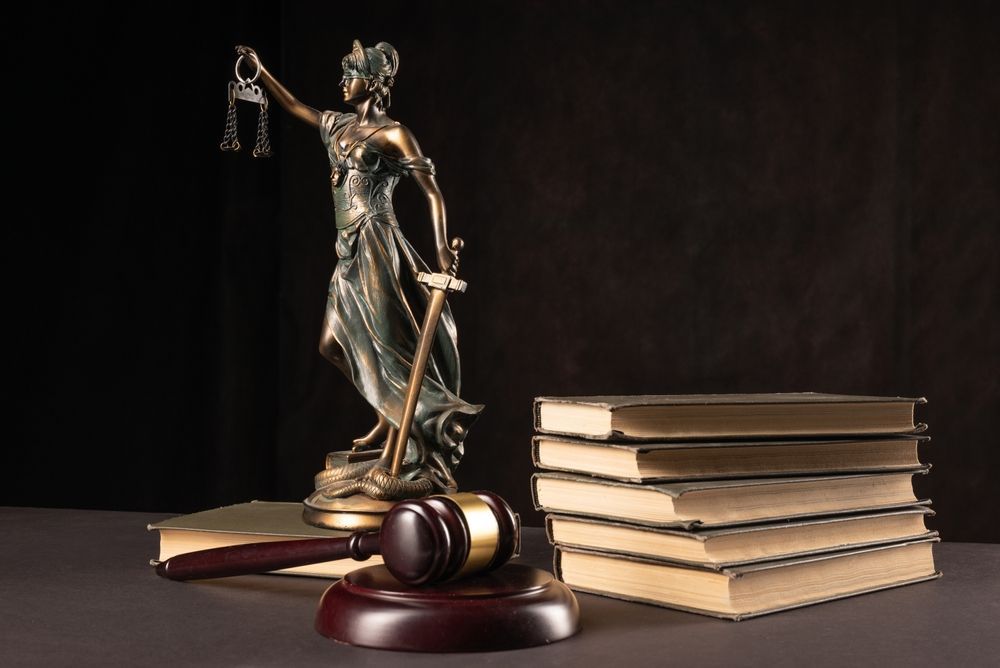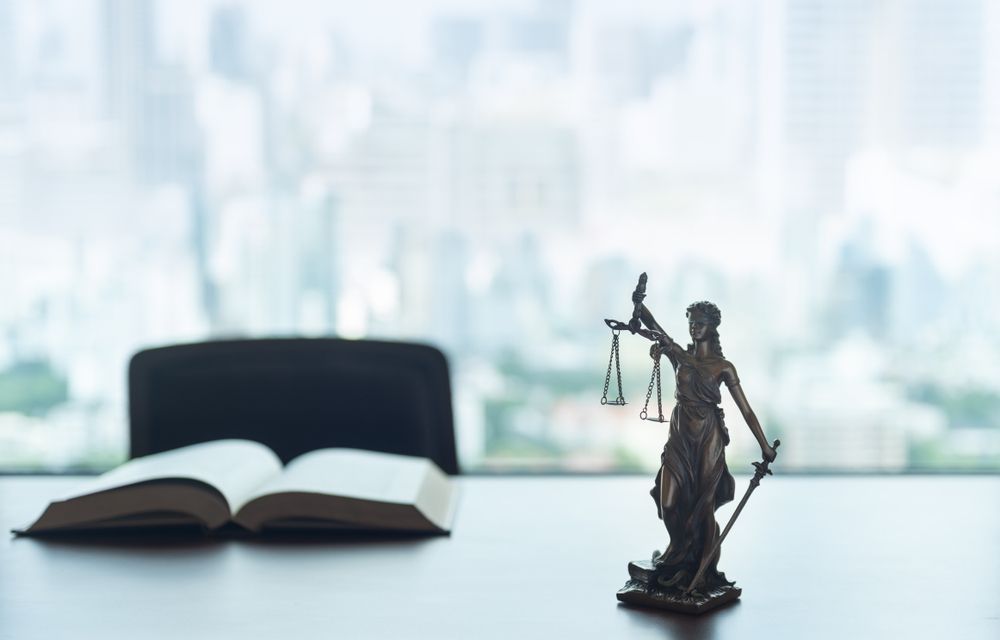How Fault Is Established in Atlanta Car Accident Cases
How Atlanta Car Accidents Determine Fault
Many situations in life can be confusing, especially when there's a lot going on around you. Take car accidents, for example. It's not always obvious who was at fault. other factors like road conditions and weather complicate matters further. A thorough investigation is sometimes needed in addition to the police report and witness statements. Forensic evidence doesn't lie. To make sure fault is accurately determined for a claim, hiring an accident attorney in Atlanta can be your best option.
Have you ever wondered how fault is determined in Atlanta car accidents? Understanding the factors that influence fault can be crucial for anyone involved in a collision. This article will cover key elements such as evidence assessment, insurance company evaluations, and the importance of police reports. By reading this content, individuals will gain insight into the role each factor plays in establishing liability. This knowledge will empower them to pursue the compensation they deserve after an accident.
Understanding Fault Determination in Atlanta Car Accidents
In Atlanta, determining fault in car accidents relies heavily on the specifics of each incident. Factors such as the behavior of the involved parties and adherence to traffic laws are examined to establish who may bear responsibility for the accident.
Contributory negligence plays a significant role in Atlanta personal injury cases. If an injured party is found to have contributed to the accident, their compensation may be reduced based on their level of fault, making it essential to gather clear evidence during investigations.
In some instances, premises liability might arise if the accident occurs on property owned by another party. The property owner may be liable if they failed to maintain safe conditions, which can complicate the fault determination process.
Georgia residents must be aware of the state's statute regarding liability and insurance claims. Understanding these laws helps individuals work within the legal system following a car accident, helping they seek the compensation they deserve for their injuries and losses.
Key Elements Influencing Fault in Atlanta Car Accidents
Negligence is a crucial factor in determining liability in auto accidents. Evaluating driver behavior, including adherence to the speed limit and traffic laws, plays a significant role in fault assessment. Additionally, road conditions can impact causation and influence a court's decision in crime-related cases. Understanding these elements provides essential insights for those filing car accident claims.
The Role of Negligence in Car Accident Liability
Negligence plays a vital role in establishing liability in a Georgia car accident. When assessing fault, testimony from involved parties, witnesses, and even passengers can shed light on the circumstances surrounding the incident. For example, if distracted driving is confirmed, it may significantly impact how a court views the responsible party's actions, potentially influencing compensation determinations from insurance companies.
In cases where negligence is evident, it is important for all parties to document evidence thoroughly. Gathering statements from passengers present during the crash can enhance understanding of the event. This information not only clarifies the actions of those involved but also assists in negotiations with insurance companies when pursuing fair compensation for injuries sustained in the accident.
Evaluating Driver Behavior and Compliance With Traffic Laws
Evaluating driver behavior is essential in establishing liability in Atlanta car accidents. Factors such as adherence to traffic laws, signs, and signals directly influence fault determination. For instance, if a driver disregards a red light, leading to a collision, this action can significantly impact their liability. Utilizing technology like dashcam footage can provide critical evidence, demonstrating compliance or violation of traffic regulations.
Additionally, comprehensive legal advice is vital for fault determination. Engaging an Atlanta car accident lawyer can help assess how driver behavior affects a case, especially in instances where negligence plays a role. This knowledge empowers individuals to understand their rights and obligations following an accident, guiding them toward obtaining fair compensation for their injuries and losses.
The Impact of Road Conditions on Fault Assessment
Road conditions can significantly influence fault assessment in Atlanta car accidents. Factors such as weather, road maintenance, and visibility can determine whether a driver met their duty of care. For example, if wet or icy roads contribute to an accident, the court may evaluate if drivers operated their motor vehicles safely under those conditions, potentially affecting liability claims.
Witness accounts often play a critical role in establishing the impact of road conditions on an accident. Eyewitnesses can provide valuable insights regarding how the road contributed to the incident, helping to clarify the actions of the involved parties. Legal representation is essential in these situations, as an attorney can gather evidence and witness statements to build a strong case for those seeking compensation due to accidents influenced by roadway factors.
Assessing Evidence in Atlanta Car Accident Cases
Gathering physical evidence from the accident scene is crucial in establishing accountability in car accident claims. Traffic camera footage can provide critical insights into driver behavior, showing whether a reasonable person would have applied their brake to avoid a collision. Testimonies from eyewitnesses further enhance the case by offering relevant observations that support the plaintiff’s claims regarding the circumstances of the incident.
Gathering Physical Evidence From the Accident Scene
Gathering physical evidence from the accident scene is vital for determining fault in Georgia personal injury cases. Key elements such as the position of vehicles, damage sustained, and nearby traffic signs, like a stop sign, can strongly influence a judge's assessment of liability. For instance, if a driver fails to stop at a stop sign and causes an accident, the evidence collected can directly correlate to their percentage of fault in the incident.
Additionally, documentation from the scene can include photographs and eyewitness statements, which serve to bolster the case for the injured party. This gathered evidence helps establish a clearer narrative of the accident, ultimately shaping the outcome of any legal proceedings. When individuals have strong evidence, it enhances their chances of obtaining fair compensation as part of their Georgia personal injury claims.
Importance of Traffic Camera Footage in Determining Fault
Traffic camera footage serves as a vital resource in car accident cases in Atlanta, providing clear evidence that can help establish liability. This footage captures real-time events and can reveal critical details, such as instances of distracted driving, including texting while driving, or adherence to traffic signals. By presenting this visual evidence, attorneys can significantly strengthen their arguments, allowing for a clearer understanding of how the accident occurred and who may be responsible for the injuries resulting from the incident.
Moreover, traffic camera evidence helps prevent fraudulent claims by corroborating or disputing the statements made by involved parties. An accurate depiction of the accident can clarify misunderstandings and offer transparency in cases where liability is disputed. Consequently, secure access to this footage can greatly assist individuals pursuing compensation for their injury claims, so justice is served based on documented facts rather than conflicting accounts.
Testimonies From Eyewitnesses and Their Relevance
Testimonies from eyewitnesses play a crucial role in establishing fault in Atlanta car accidents. These accounts can provide essential insights into the events leading to the incident, especially in situations where a chain reaction of events occurred. For example, if one driver's actions led to the involvement of another vehicle, an eyewitness can clarify how each party contributed to the accident, informing liability discussions and assisting in negotiations with liability insurance providers.
In addition to outlining the sequence of events, eyewitness testimonies can help counter conflicting narratives presented by the involved parties. This is particularly important in cases where liability is disputed and can impact how compensation claims are settled. By providing objective observations, eyewitnesses help create a clearer picture of the accident, reinforcing the need for accurate documentation and emphasizing the importance of gathering such testimonies early in the process.
How Insurance Companies Evaluate Fault in Atlanta Accidents
The process of claim investigation by insurers in Atlanta involves a thorough assessment of the accident facts, including the behavior of drivers at traffic lights and on highways. Insurers consider various factors, such as witness accounts, vehicle positions, and any indications of negligence, to determine liability. Understanding these elements is essential for individuals pursuing accident claims and seeking fair settlements, especially when experiencing pain and suffering due to injuries.
The Process of Claim Investigation by Insurers
The investigation process conducted by insurers following motor vehicle accidents involves a comprehensive evaluation of the incident details. Insurers analyze factors such as driver behavior, vehicle positions, and compliance with traffic laws to determine liability in car accident claims. For instance, if a driver was not wearing a seat belt at the time of the accident, this oversight may influence how compensation is assessed based on the extent of their injuries.
In addition, insurers collect witness statements and review traffic camera footage to build a clearer picture of the accident's circumstances. This evidence is crucial in assessing the involvement of each vehicle and identifying any negligence that contributed to the incident. A thorough claim investigation helps guarantee that affected individuals receive the rightful compensation for their losses while allowing insurers to make informed decisions regarding fault determination.
Factors Insurers Consider When Determining Liability
When determining liability in car accidents, insurers closely evaluate several factors, including the actions of the drivers involved. For instance, if a police officer witnessed the accident, their statements can significantly influence the investigation. In cases involving a hit and run, the lack of information about the fleeing driver complicates matters, making the assessment of duty of care more essential as it pertains to accountability.
Insurers also consider the circumstances surrounding the accident, such as whether pedestrians were involved or if the incident occurred near a nursing home where vulnerable individuals might be present. Each case requires an understanding of how all parties upheld their duty of care to preserve safety. By analyzing these factors, insurers aim to establish a fair liability determination and help those injured receive appropriate compensation for their losses.
The Role of Police Reports in Fault Determination
Police reports provide crucial information in determining fault in car accidents. These reports typically include details of the incident, assessments made by officers, and any citations issued. Officers analyze the facts and document the circumstances surrounding the accident, which can significantly influence personal injury cases and potential damages. Insights gained from police reports assist in evaluating fault and can play a pivotal role if the case progresses to a jury.
What Information Is Included in Accident Reports
Accident reports prepared by law enforcement provide essential information regarding traffic collisions. These documents typically include details such as the time and location of the incident, weather conditions, and descriptions of the vehicles involved. Additionally, reports often contain observations made by officers at the scene, which can assist in establishing the burden of proof when injuries or damages are being negotiated.
Moreover, police reports may also list any citations issued to drivers, such as for speeding or running a red light, which can directly impact liability assessments. The documentation of eyewitness statements and diagrams illustrating the accident's specifics contributes to a clear narrative. This comprehensive information is crucial for individuals pursuing personal injury claims, including cases that involve slip and fall incidents on the roadway adjacent to the accident.
How Officers Assess and Document Fault
When assessing fault in car accidents, officers gather critical information at the scene to create an accurate account of the incident. They observe the positions of the vehicles, note environmental factors, and document witness statements, all of which contribute to the police report that plays a significant role in any subsequent personal injury claim. This thorough documentation helps clarify who may be responsible for the accident and can directly impact the compensation for individuals suffering from injuries.
Officers also evaluate any evidence of traffic violations, such as citations issued for reckless driving or failure to comply with traffic signals. These details are essential for establishing liability, particularly in personal injury cases where individuals seek compensation for damages. By documenting these factors accurately, police reports provide a foundational element for negotiating personal injury protection claims and can influence class action cases should multiple parties be affected by the same circumstances.
Managing the Legal Framework for Fault Determination in Atlanta
Understanding key statutes relevant to car accidents is essential for anyone during the aftermath of a car crash in Atlanta. This section will explore the concept of comparative negligence, highlighting how it can affect compensation in situations involving factors such as snow and adverse conditions. Individuals seeking clarity on these topics, especially in wrongful death claims, can benefit from insights on how the legal framework operates.
Additionally, a free case evaluation may assist in uncovering the specifics of liability and determine potential outcomes for insurance claims. This understanding empowers those affected by a car accident to manage the claim effectively.
Key Louisiana Statutes Relevant to Car Accidents
In Atlanta, understanding comparative fault statutes is crucial in car accidents involving property damage and personal injury claims. Under Georgia law, if an individual is found to be partially responsible for an accident, their compensation can be adjusted according to their percentage of negligence. This system can significantly impact the recovery process for victims of distracted driving accidents, as the liability distribution determines how much they can recover from insurance companies.
Additionally, Georgia's approach to negligence plays a pivotal role in fault determination. If a driver engages in behaviors such as distracted driving, and this is established as a contributing factor to the accident, their actions may be scrutinized in detail. The evidence collected during the investigation, including witness statements and traffic camera footage, can demonstrate the severity of negligence and influence the decisions made by insurance companies regarding claim settlements.
Understanding Comparative Negligence in the Atlanta Context
In Atlanta, understanding comparative negligence is crucial for individuals involved in accident cases. Under Georgia law, if a party is found to share some responsibility for an accident, their potential compensation can be adjusted based on their level of liability. This means that if someone is deemed 20% at fault for a collision, their compensation would be reduced by that same percentage, which significantly impacts the recovery potential from their insurance policy.
Gathering evidence to demonstrate the extent of one’s negligence is essential in establishing a strong case during a lawsuit. This includes obtaining witness statements, accident reports, and traffic camera footage that can clarify the events leading up to the incident. By presenting clear and convincing evidence, a claimant can better utilize liability and enhance their chances of receiving fair compensation for their injuries and losses.
Seeking Legal Guidance for Fault Determination in Atlanta Accidents
After an Atlanta car accident, consulting an attorney is crucial for fault determination. An experienced lawyer can provide insights into when to seek legal guidance, particularly regarding the statute of limitations under Georgia law. Legal representation not only enhances the likelihood of securing fair compensation but also aids in understanding liability claims, especially in traffic-related incidents.
This section will discuss the optimal times to contact an attorney and the substantial benefits of having legal representation during liability claims, making sure individuals are well-informed and prepared to pursue their rights after an Atlanta car crash.
When to Contact an Attorney After an Accident
Individuals involved in an accident should consider contacting an attorney as soon as possible, especially if injuries are present or if there are indications of driving under the influence. An attorney can help with matters surrounding fault determination, making sure the rights of the individual are protected while exploring avenues for compensation related to pain and suffering. Early legal guidance is crucial, as it allows the affected party to gather necessary evidence and build a strong case against any allegations of negligence or insurance fraud.
Furthermore, hiring an attorney can greatly benefit those whose cases may require an expert witness to establish liability or assess damages accurately. Experienced legal representation can streamline the process, clarify legal jargon, and provide insights that empower the injured party to seek appropriate restitution. Engaging a professional early on not only helps in managing the aftermath of the accident but also instills confidence in pursuing rightful claims with the insurance companies involved.
Benefits of Legal Representation in Liability Claims
Legal representation provides significant advantages for car accident victims navigating liability claims in Atlanta. A knowledgeable personal injury lawyer can evaluate the details of an incident more effectively, so all pertinent evidence, such as witness statements and traffic camera footage, is carefully gathered. This thorough approach not only strengthens a case but also bolsters the argument for fair compensation aligned with the terms of the insurance policy.
Moreover, having a lawyer during this challenging period offers peace of mind amid the urgency many accident victims face. Legal experts can guide clients through challenging legal processes and communicate with insurance companies on their behalf, alleviating the stress associated with negotiations. This support is crucial for those seeking the compensation they deserve, as it enhances their chances of a positive outcome in securing just restitution for their injuries and losses.
Recent Posts






Attorney Joseph Zdrilich
Attorney Joseph A. Zdrilich is the founder of Zdrilich Injury Law and has represented injured clients across Georgia since 2007. He is a graduate of the University of Richmond and Syracuse University College of Law and has handled both bench and jury trials in personal injury, workers’ compensation, trucking, and auto accident cases. He is admitted to practice in all Georgia state courts, the U.S. District Courts for the Northern and Middle Districts of Georgia, and the Eleventh Circuit Court of Appeals. If you were injured due to someone else’s negligence, contact Zdrilich Injury Law today for a free legal consultation.
GET A FREE CONSULTATION TODAY
INJURED? TAKE YOUR LIFE BACK!
Zdrilich Injury Law is committed to helping injured Georgians receive the money they need to recover physically and financially after an accident.
